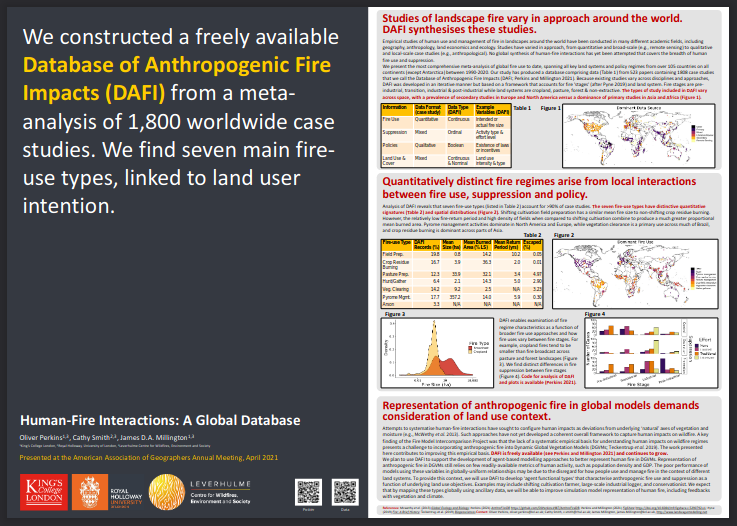This PhD aims to examine how behavioural modelling may provide the basis for improved representations of anthropogenic fire impacts in global-scale process-based models. It does this by quantifying the influence of human behaviour on wildfire regimes around the world and developing agent-based representations of that influence to integrate with the existing JULES-INFERNO model.
A central finding of the Fire Model Intercomparison project (FIREMIP) was that simple representations of anthropogenic impacts on fire – based on readily available data such as population density or GDP – are a substantial shortcoming in current global fire models.
This shortcoming stems from two key research challenges:
1. the absence of a systematic empirical basis from which to derive improved representations of people in global models.
2. the lack of appropriate modelling frameworks through which to capture and project anthropogenic fire impacts globally.
This project aims to address both these research challenges.
To address the first research challenge, we have developed DAFI: the first global Database of Anthropogenic Fire Impacts. DAFI currently contains data from over 500 papers on more than 1,800 case studies from 100 countries between 1990-2020. DAFI is freely available to download and you can read more about it on this poster (peer-reviewed publication forthcoming).
We presented progress on the second research challenge at EGU 2021 in our presentation entitled, Advancing representation of anthropogenic fire in dynamic global vegetation models. You can download the slides [pdf] accompanying the presentation, or view them online.
Project duration: 2020-2024









